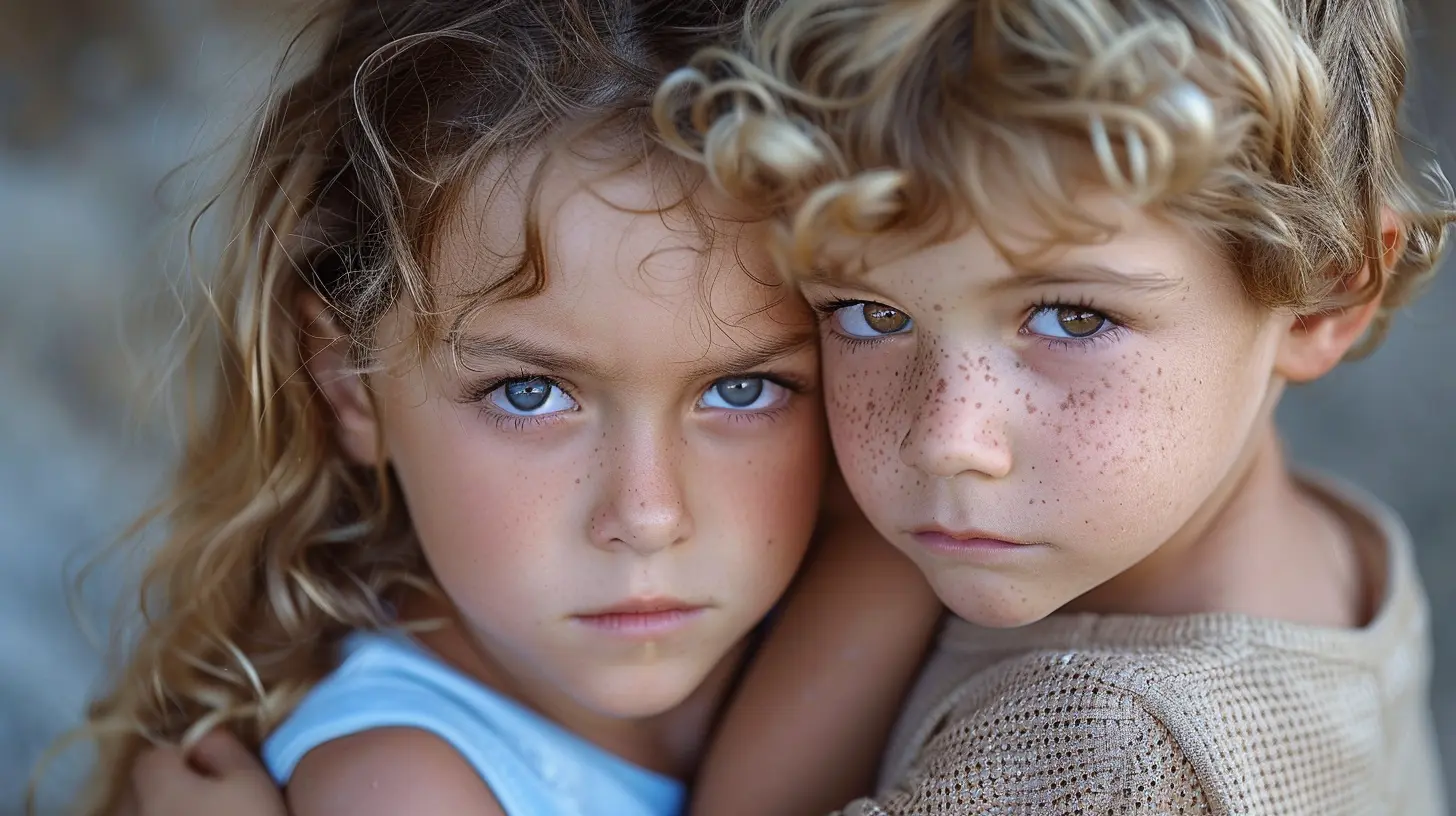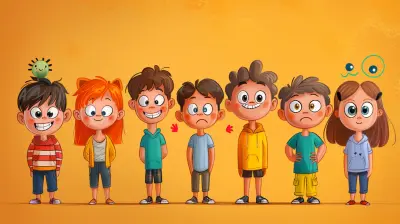How Parents Can Unintentionally Fuel Sibling Jealousy
14 November 2025
Sibling rivalry is nothing new—almost every household with more than one child experiences it. From fighting over toys to competing for attention, jealousy between siblings is common. But did you know that, as parents, we might unknowingly be making it worse?
Yep, without even realizing it, our everyday actions and words can fuel resentment between our kids. This doesn’t mean you’re a bad parent—it just means it’s time to understand how subtle behaviors can impact sibling relationships.
In this article, we’ll dive into the ways parents unintentionally cause sibling jealousy and, more importantly, how to stop it before it turns into long-lasting resentment.

Understanding Sibling Jealousy
Sibling jealousy often stems from a child feeling like they’re not getting their fair share—whether it's love, attention, or privileges. Kids naturally compare themselves to their brothers and sisters, and when they feel like they’re falling short, jealousy creeps in.While occasional jealousy is normal and even healthy, constant feelings of being “less than” can damage sibling relationships and lead to low self-esteem.
Now, let’s look at some common mistakes parents make that fuel this jealousy without even realizing it.

1. Comparing One Child to Another
Phrases like:- “Why can’t you be more like your sister?”
- “Your brother never acts this way.”
- “Look how well your sister does in school!”
While comparisons might seem like a way to encourage good behavior, they often do the opposite. Instead of motivating your child, it makes them feel like they’ll never measure up. It sets the stage for bitterness and competition rather than mutual encouragement.
What to Do Instead:
Focus on each child’s unique strengths without bringing their siblings into it. Praise their efforts rather than comparing them to someone else:✔ “I love how hard you worked on your project. Your creativity really shines!”
✔ “I appreciate how kind you were to your friend today—that was very thoughtful of you.”

2. Playing Favorites (Even Unintentionally)
Most parents will deny having a favorite child, but kids are incredibly perceptive. If one child gets more privileges, praise, or affection, the other will notice—and resentment will build.Sometimes, the “favorite” child is the one who simply causes less trouble. A quiet, obedient kid may receive more positive attention than a sibling who’s more rebellious.
What to Do Instead:
Be mindful of the attention and affection you give each child. Make sure each one feels valued for who they are.✔ Spend one-on-one time with each child. It doesn’t have to be extravagant—reading a book with one while another is out playing can be enough.
✔ Show appreciation and affection equally. A hug, a kind word, or simply listening can go a long way.

3. Giving One Child More Responsibilities
Older siblings often bear the brunt of responsibility—they’re expected to be more mature, help around the house, and act as role models. While this is natural to some extent, excessive responsibility can be unfair.If an older sibling is always told to "be the bigger person" or "let it go" while the younger one gets away with everything, resentment is inevitable.
What to Do Instead:
✔ Give responsibilities based on ability, not age. If younger kids are old enough to take on small tasks, let them contribute too.✔ Acknowledge the effort of older siblings. A simple, “I know it’s tough being the oldest, and I appreciate you,” can validate their feelings.
4. Swooping in to Solve Every Argument
As parents, we hate seeing our kids fight. Our first instinct is often to step in and fix things. However, constantly playing referee can actually make things worse.If one child feels like you always take their sibling's side, they’ll start to believe you’re unfair. Even if you’re trying to be neutral, perception matters.
What to Do Instead:
✔ Instead of always solving disputes, coach your kids on how to resolve conflicts themselves.✔ Encourage them to express their feelings and listen to each other. Sometimes, just allowing them to talk it out does the trick.
✔ When intervention is necessary, avoid assigning blame. Focus on moving forward instead of dwelling on who was "right" or "wrong."
5. Rewarding the More "Accomplished" Child
It’s natural to celebrate achievements—whether it’s a great report card, a sports victory, or an art project. But if one child consistently gets the limelight, their sibling may feel overshadowed.A child who isn’t as academically or athletically inclined might feel like their accomplishments don’t matter. Over time, this can cause them to withdraw or act out.
What to Do Instead:
✔ Celebrate all achievements, big or small. Did one child help set the dinner table? Did they show kindness to a friend? Recognize those efforts too.✔ Encourage each child’s unique talents rather than placing too much importance on traditional success measures.
6. Not Addressing Jealousy Openly
Some parents brush off jealousy as "just a phase" or assume kids will grow out of it. While minor jealousy often fades, ignoring deeper feelings can lead to long-term sibling resentment.What to Do Instead:
✔ Talk about feelings openly. If one child expresses jealousy, acknowledge it instead of dismissing it.✔ Help both kids understand that love isn’t a finite resource—you don’t love one more than the other.
✔ Encourage gratitude and appreciation between siblings. Teach them to recognize and verbalize what they like about each other.
7. Creating a Sense of Competition
A little competition can be healthy, but when everything feels like a race—who gets better grades, who finishes dinner first, who earns more praise—relationships become strained instead of supportive.What to Do Instead:
✔ Foster teamwork instead of rivalry. Encourage siblings to work together rather than compete against each other.✔ Praise effort rather than just results. Not everything has to be about winning.
✔ Avoid constantly comparing achievements. Instead, celebrate each child's progress individually.
Building a Stronger Sibling Bond
Sibling jealousy isn’t entirely avoidable, but as parents, we can take steps to minimize it. By being mindful of how we interact with our kids, we can create a home environment where each child feels loved, valued, and appreciated.Siblings can either be lifelong best friends or lifelong rivals. The way we handle jealousy in childhood plays a big role in shaping that bond.
At the end of the day, kids just want to feel loved. And showing them that love—equally and uniquely—can make all the difference.
all images in this post were generated using AI tools
Category:
Sibling JealousyAuthor:

Austin Wilcox
Discussion
rate this article
1 comments
Zephyra Bishop
Great article! It’s essential for parents to recognize their role in fostering sibling relationships. By promoting equality and celebrating individuality, we can reduce jealousy and strengthen bonds among siblings.
November 14, 2025 at 5:21 AM

Austin Wilcox
Thank you! You're absolutely right—promoting equality while celebrating individuality is key to nurturing healthy sibling dynamics.


